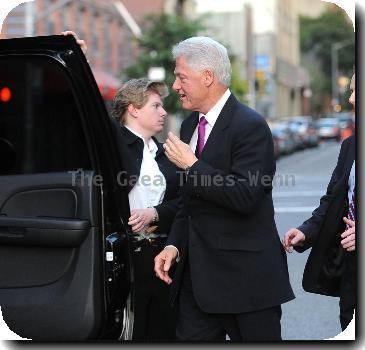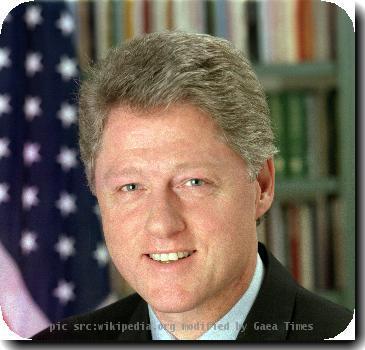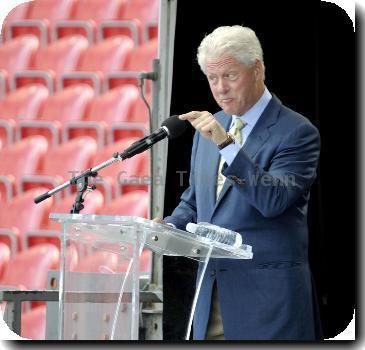Vernon Baker, black WWII hero who belatedly received Medal of Honor, dies of cancer at 90
By Rebecca Boone, APWednesday, July 14, 2010
Medal of Honor hero Vernon Baker dies at age 90
BOISE, Idaho — Vernon Baker, a black U.S. soldier who belatedly received the Medal of Honor for his World War II battlefield valor after historians concluded he’d been wrongly denied the military’s top award because of his race, died at his home near St. Maries, Idaho. He was 90.
Baker died Tuesday of complications of brain cancer, Benewah County coroner and funeral home owner Ron Hodge said.
Then-President Bill Clinton presented the nation’s highest award for battlefield valor to Baker in 1997. He was one of just seven black soldiers to receive it and the only living recipient.
“The only thing that I can say to those who are not here with me is, ‘Thank you, fellas, well done,’” Baker told The Washington Post after the ceremony. “‘And I will always remember you.’”
In 1944, 2nd Lt. Baker was sent to Italy with a full platoon of 54 men. On April 5, he and his soldiers found themselves behind enemy lines near Viareggio, Italy. When concentrated enemy fire from several machine gun emplacements stopped his company’s advance, Baker crawled to one and destroyed it, killing three Germans. Continuing forward, he attacked an enemy observation post and killed two occupants.
With the aid of one of his men, Baker attacked two more machine gun nests, killing or wounding the four enemy soldiers occupying these positions. Then he covered the evacuation of his wounded soldiers by occupying an exposed position and drawing the enemy’s fire.
On the following night, Baker voluntarily led a battalion advance through enemy mine fields and heavy fire.
In all, Baker and his platoon killed 26 Germans and destroyed six machine gun nests, two observer posts and four dugouts.
He said later he felt the company commander, who said he was going to get reinforcements, had abandoned his group of men.
“It made me all the more determined to accomplish our mission,” he told the PBS series “American Valor.” ”Because at that time the Army was segregated. It was thought that we were unable to fight.”
No black soldiers were awarded the Medal of Honor during World War II, although Baker did receive the Purple Heart, a Bronze Star and Distinguished Service Cross.
In 1993, U.S. Army officials contracted Shaw University in Raleigh, N.C., to study whether there was a racial disparity in the way Medal of Honor recipients were selected.
Historians did not find official evidence suggesting racial bias in the Army’s award policy. But the study’s authors say the political climate and common Army practices guaranteed no black soldier would ever receive the military’s top award.
The university researchers recommended 10 soldiers to receive it. From that list, Pentagon officials picked seven.
But there was one problem — the statutory limit for presentation had expired. Congress was required to pass legislation that allowed the president to award the Medals of Honor so many years after the action.
Vernon Baker was the only recipient still living; the other six soldiers received their awards posthumously, with their medals being presented to family members.
Baker was initially rebuffed when he tried to join the Army. Baker said in an interview with public television that a recruiter told him there was no quota for enlisting “you people.”
Reflecting on life in a segregated Army unit, he told The Washington Post, “I was an angry young man. We were all angry. But we had a job to do, and we did it.” He added that he “knew things would get better, and I’m glad to say that I’m here to see it.”
Baker returned to his northern Idaho home after the war. When he received a call telling him he was to receive a Medal of Honor, at first he was astonished. Then he was angry.
“It was something that I felt should have been done a long time ago,” he told Idaho public television. “If I was worthy of receiving the Medal of Honor in 1945, I should have received it then.”
Baker called his 1997 memoir “Lasting Valor.”
U.S. Rep. Walt Minnick said he met Vernon Baker in the 1990s when the soldier spoke at a College of Idaho event. Minnick said he’d been expecting a battle-hardened soldier but was instead struck by Baker’s gentle demeanor. Minnick said Baker’s valor on the battlefield in Italy was a rebuke of racist policies that dominated the U.S. military into the middle of the last century.
“His actions on the front line demonstrates better than words can describe why discrimination and segregation in the military was both unfair and absolutely inconsistent with an effective fighting force,” Minnick said. “He demonstrated a degree of courage few people have. He was prepared to give his life for his country — a country in which he was considered a second-class citizen.”
Baker was born in 1919 in Wyoming. Orphaned as a small child, he was raised by his grandparents in Cheyenne. He was working as a railroad porter when he decided to join the Army in mid-1941, a few months before Pearl Harbor.
In 2004, Baker underwent emergency surgery to remove a malignant brain tumor. Before he fell ill, he had failed to sign up for benefits from Veterans Affairs and Medicare, not realizing what the requirements were. Community members and politicians in Idaho pitched in to help him get aid for his unpaid medical bills.
Hodge said Baker continued to battle brain cancer over the next years, and he recently began receiving hospice care at his home. Baker was surrounded by his family when he died Tuesday evening.
AP reporter John Miller, in Boise, Idaho, contributed to this report.
Tags: Bill Clinton, Boise, Europe, Idaho, Italy, North America, Obituaries, St. Maries, United States, Western Europe


